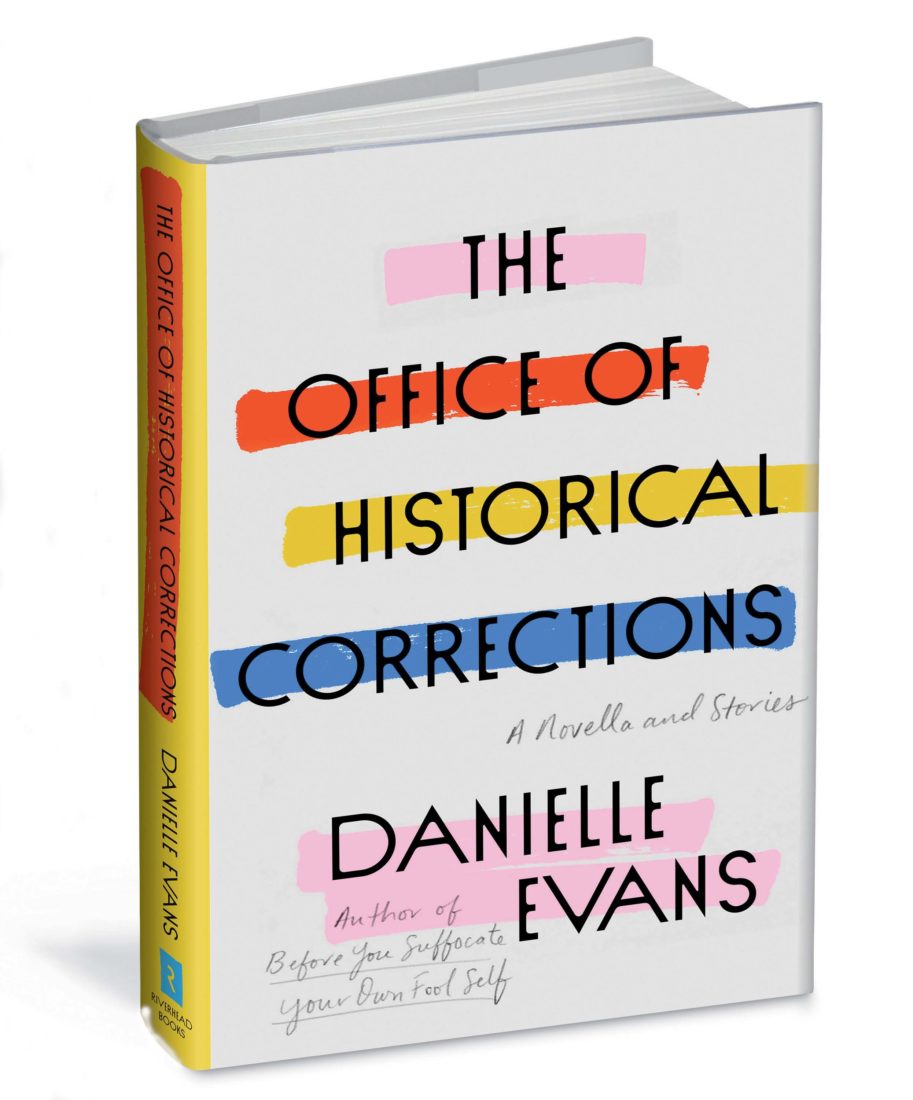Cassie Jacobs, the narrator of the titular novella at the heart of Danielle Evans’s astonishing second collection, The Office of Historical Corrections, works as a field agent for the Institute of Public History, a fictional federal agency “devoted to making the truth so accessible and appealing” that it cannot be ignored. Cassie’s job entails roaming Washington, D.C., in search of historical inaccuracies: a bakery hawking a Juneteenth cake as a way to celebrate the anniversary of the Emancipation Proclamation, for instance (“it actually recognizes the date slaves in Texas learned they were free,” she tells the bakery owner), or the oft-misconstrued origin of the architectural descriptor brutalist. (Cassie would have you know it derives from brut, part of the French term for raw concrete, and not from brutality.) Armed with a handheld printer, she churns out stickers correcting falsities, ornamenting the nation’s capital with Post-it notes of truth as a “solution for decades of bad information and bad faith use of it.”
Danielle Evans doesn’t traffic in bad information or bad faith. What her keen and bracing stories convey, instead, is the best kind of information: the “truth that reality obscures,” to crib a line from the author Jessamyn West. Evans, a thirty-seven-year-old Virginia native, does two things spectacularly well. First, she takes heed of just about everything. As though equipped with sociocultural X-ray vision, she is preternaturally alert to all the trenchant details and signifiers of the Now. Nothing escapes her notice, from the smell of a frazzled mother on a Greyhound bus (“cigarette smoke and chocolate milk”) to the way so many people these days devote themselves to “practicing being famous.” Good fiction, Ralph Ellison once noted, “is made of what is real, and reality is difficult to come by.” Difficult in Ellison’s time, and exponentially more so in ours. But Evans sees through the murk and mendacity. She writes with halogen fog lights.
Second, she floors the pedal. Her narratives move with an urgency rare in contemporary fiction, where so many stories get gummed up in traffic just shy of the exit for Quiet Epiphany. Take that title novella, for instance. Rather than turning its timely and prickly conceit into a playroom for satire, Evans uses it instead as the base for an ostensibly oldfangled detective story—Cassie travels to the Midwest to verify a sign memorializing the 1937 murder of a small town’s sole Black resident, who, as Cassie discovers, wasn’t actually murdered—that morphs into a devastating exploration of racial injustice and racial violence and the corrections so overdue in America. Its effect is not brut but brutal. It’s as potent a story as I’ve encountered in years.
Evans’s short stories move with similar verve. One involves a hunt for a runaway groom; another pairs a young female drug courier with an abandoned toddler. In “Boys Go to Jupiter,” a college student’s life seems upended when a snapshot of her wearing a Confederate flag bikini goes viral and sparks campus outrage. But Evans, again, isn’t content with satire or commentary or dispatches from the front lines. She swims deep, submerging herself in the student’s history, to show us, wrenchingly, a life that had already been upended. It’s no coincidence that a character in another story has a tattoo reminiscent of a Faulkner line: The past isn’t dead. It isn’t even past. The sticky residue of history—public and private—is smeared through these stories. It snags some characters like flypaper. Others rebel at the tendency for memory, as Mario Vargas Llosa wrote, to rearrange the past to fit the present. And still others can only roll their eyes. A young Black woman working at a kitschy, almost-to-scale replica of the Titanic asks why she, unlike the white employees, is never cast as a princess when the ship hosts birthday parties. Her supervisor mumbles something about historical accuracy. “We’d hate for the six-year-olds having tea parties on the Titanic,” comes her acid retort, “to get the wrong idea about history.”
“You have no idea how much you take for granted,” a Black mother tells her daughter the first time the daughter brings home a white friend. “But she was wrong about that,” the daughter, Evans’s narrator, says. “You take nothing for granted when the price of it is etched across the face of the person you love the most, when you are born into a series of loans and know you will never be up to the cost of the debt.” Evans takes nothing for granted, either. The Office of Historical Corrections stings, startles, sings, and astounds.









